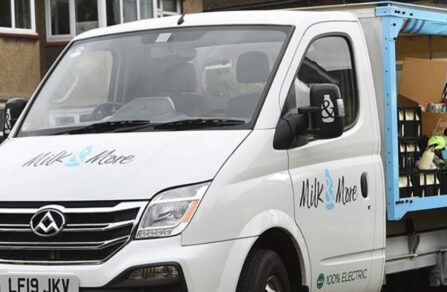
Meeting the New Energy Demand Calls for Joined Up Thinking
As more industries turn to electricity to accelerate their decarb...
EV charging stations offer ‘plug-in’ electrical charge to your vehicle through a cable, which charges the battery, enabling your car to drive and function. There are a range of different types of EV charging stations in the UK that can be utilised, from public to private, free to paid. In this guide, we’re going to explore the EV charging infrastructure in the UK.
Electric Vehicle Charging Stations are most commonly situated at the user’s home, however, it’s also possible to charge an electric vehicle on public streets, at petrol stations and at workplace charging stations. In some cases, workplace charging stations may even offer free or subsidised charging as part of your employment terms – it’s always worth checking!
To begin charging your vehicle at the majority of public ev charging points in the UK, you can either simply plug the connector from the charge point to your vehicle, sign into your app, use your contactless card or use a charge card. UK Public charge points will use either tethered or untethered cables to charge electric vehicles, this will usually depend on the type of charge point you want to use, such as fast, rapid or ultra-rapid charging.
An untethered cable has connectors at both ends to be plugged into the charger and the car, and it can be completely removed and stored. A tethered EV charger has one end permanently connected to the charger. The majority of public EV charging stations in the UK are untethered, meaning you need to bring your own charging cable.
Fast EV charging stations are most suitable for:
For public rapid charging, the majority of petrol station charging points in the UK offer the two most common rapid charge connectors (CCS & CHAdeMO).
Rapid EV charging stations are most suitable for:
Ultra-Rapid EV charging is the fastest option when looking to charge your electric vehicle. Ultra-Rapid charging stations are most suitable for:
Charging your electric vehicle at home requires an EV charger to be installed. Often, the EV charger is installed on the outside of your home, or in a garage, within charging distance of your vehicle. There are various options in regards to speed of charge with the most common EV charging option for private use being 7kW.
7kW charging points for the home are the most common options due to the fact that most homes can already support this charging option (single phase power supply). For every hour your vehicle is charging, a 7kW charge point will offer around 30 miles of charge.
7kW charge points can typically charge a standard electric vehicle to full battery overnight or in around 8 hours. Many homeowners in the UK choose an Economy 7 or 10 tariff to make the most of cheaper overnight electricity prices. It’s also possible to use renewables such as solar PV and wind turbines to generate the electricity used by your charger. This will further reduce costs and your impact on the environment.
22kW charging points offer the fastest charging point options for home installation. However, your home must have a three-phase power supply and in addition, your electric vehicle must also accept 22kW charging. Many new EVs do, but ensure you check before installing an expensive charging point that you can’t make the most of.
Although this is a faster charging option, the vast majority of home EV charging points are used to charge a driver’s vehicle overnight and therefore, at a practical level, you may not even notice the difference.
There are several factors that could determine whether you choose a tethered or untethered EV charging solution for your home. However, for most people, it’s a simple choice between having the cable attached to the charging station permanently (tethered) or choosing to use a separate cable to attach and detach each time you start and finish charging.
Benefits of using an tethered EV charging station at home
Benefits of using an untethered EV charging station at home
Ultimately both charging units have the same purpose, but how you use your charger, its placement, and your opinions on what will be important to future-proof your EV charger will help determine which is best for you.
Workplace EV charging can be implemented in a variety of ways to suit the business or employees who may wish to use the workplace charging points.
Some businesses choose to offer unlimited free charging to their employees or a number of hours free charging followed by a fixed hourly rate after the threshold is reached. Either way, workplace EV charging can be adapted to suit the business’s needs.
Mer offers fast EV charging points for workplaces, which aim to charge vehicles over the course of a few hours – ideal for businesses and employees. While homes may not always benefit from 22kW fast EV chargers, workplaces definitely can. Fast chargers will allow more of your workforce to charge their cars. You may also consider offering it to customers or visitors as a perk of your business, in which case fast charging will also be desirable.
Yes, there are. The Office for Zero Emission Vehicles (OZEV) offers grant schemes for the installation of EV chargers either at home or for commercial premises.
“The EV Chargepoint Grant provides funding of up to 75% towards the cost of installing electric vehicle smart charge points at domestic properties across the UK. It replaced the Electric Vehicle Homecharge Scheme (EVHS) on 1 April 2022.”
Similar schemes exist for commercial premises too, either in the form of the Workplace Charging Scheme (WCS) grant, or the EV Infrastructure Grant for Staff & Fleets:
“The Workplace Charging Scheme is a voucher-based scheme that provides eligible applicants with support towards the upfront costs of the purchase and installation of electric vehicle charge points.
The grant covers up to 75% of the total costs of the purchase and installation of EV charge points (inclusive of VAT), capped at a maximum of:
[The WCS] grant can be used in conjunction with the EV infrastructure Grant for Staff & Fleets which helps fund both the installation of charge points and the cost of charge point infrastructure. Both grants may be used for the same site but not the same charge points.”
The EV Infrastructure Grant is aimed specifically at UK SMEs and “covers up to 75% of the cost of installing the infrastructure needed for charge points to operate and for future charge points to be installed, as well as the cost of any charge points installed. There is a limit of £15,000 per grant. You can get up to:
EV charging costs can vary across the UK depending on your location, the charger you’re using, and the time of day you’re using it. As of June 2023, the average cost of electricity in the UK is around 32p/kWh. This means, to charge an average EV from empty to full would cost between £15 and £20.
Public EV charging stations can vary in pricing, so it’s much more difficult to offer an approximate figure.
For more information on workplace charging, get in touch with our team.

As more industries turn to electricity to accelerate their decarb...

Getting the UK’s charging infrastructure network right is essenti...

Milk & More is the UK’s biggest online doorstep milk delivery fir...